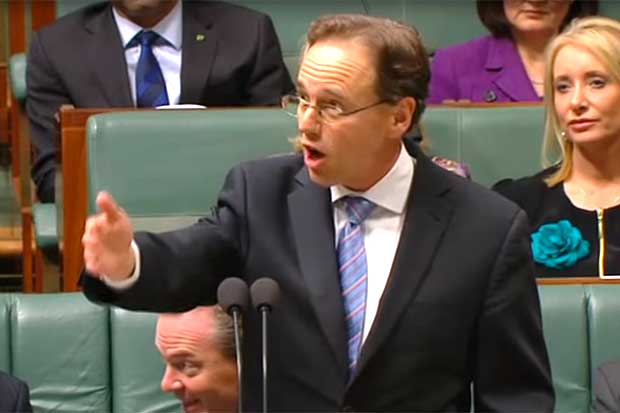The Australia Institute has taken aim at Federal government claims around the costs of environmental regulation, dismissing a range of papers from lobby groups and the government itself as “based on misleading economic assessment”.
The analysis slams research by groups like the Minerals Council of Australia, the Business Council, and the Australian Petroleum Production and Exploration Association as being of “teenage standard”, and it comes as the Senate prepares to consider a Bill this week which would effectively transfer much of the work of the Commonwealth Environment Minister to the states.
The Environment Protection and Biodiversity Conservation Act, Australia’s main national environmental law, had already been in the spotlight in recent months after the government bungled the approval of what would be Australia’s largest ever coal mine, and then attacked conservationists as ‘economic vandals’ for mounting a successful legal challenge.
The Bill that will come to a vote in the Senate this week is — according to the government — aimed at cutting ‘green tape’ without lessening environmental protections by allowing states to assess and approve major developments without Federal oversight, but it has been roundly condemned by specialist environmental lawyers as a watering down of regulation.
Legal minds have questioned why — if the government’s aim, as stated in the name of the policy, is to create a ‘One Stop Shop’ for environmental approvals — a cabal of eight ‘shops’ for environmental regulation are effectively being created by passing the buck back to the states.
The Federal government’s much-vaunted savings dividend associated with the One Stop Shop reforms, at a cool $417 million, was lambasted in the Australia Institute analysis, which was commissioned by the World Wildlife Fund.

The $417 million figure is based on a “paper [which]has many major methodological shortcomings from an economic perspective,” The Australia Institute said.
Chief amongst the criticisms is that the Commonwealth has assumed that all time spent undergoing government approval processes corresponds with an equal delay in project cash flows.
The Australia Institute points out this “… isn’t necessarily the case [because]many other aspects of project preparation, planning and financing occur concurrently”.
“Although the Department [of Environment]has valued these projects with positive net present value,” the analysis said of a bucket list of developments, “many of them have not proceeded even after gaining approval [because]they are not financially viable”.
This, obviously, would have the affect of inflating the costs that the government is trying to pin on environmental protections.
In stark contrast, the government has been strangely silent on the affect of plummeting coal prices, which have tanked by around 60 per cent over the last half decade. Rather, as industry feels the heat the Abbott government has closed ranks and sought to present massive coal projects like those proposed for Queensland’s Galilee Basin as vital to the nation’s economic future.
The Prime Minister even went as far as to claim that we have “lost our sense as a nation” if the Adani Carmichael coal mine, which would create four times the emissions of New Zealand, does not receive approval under the Act the government is now moving to curtail on a range of fronts.
Last week separate changes to the EPBC Act, which would restrict the legal standing around who can bring a case challenging government decisions to people ‘directly affected’, passed the House of Representatives, but there is little appetite for the reform amongst Senate crossbenchers.
An Essential Poll commissioned by progressive lobby group GetUp! last week found that those sentiments are mirrored by the community, with only 22 per cent of voters in favour of the move to restrict who has standing under the Howard-era Act.
A resounding 77 per cent of respondents said that they believe citizens should retain the right to access the law.
The One Stop Shop reforms fit within this push to limit community involvement in the planning process, and the Australia Institute analysis criticises the fact that economic modelling that has been done by business groups and government does not “consider that there is economic value in conducting Commonwealth environmental approval”.
“In fact, further assessment of environmental impacts often protects valuable environmental assets,” the analysis points out.
Federal government oversight powers have previously been used to protect iconic Australian landscapes like the Great Barrier Reef and the Franklin River, and WWF Chief Executive Officer Dermot O’Gorman cautioned that “if passed, these amendments will limit our ability nationally to protect the places and iconic creatures Australians love”.
Earlier analysis by The Australia Institute has found that less than 0.4 per cent of projects are affected by legal challenges mounted under the Environment Protection and Biodiversity Conservation Act.
Donate To New Matilda
New Matilda is a small, independent media outlet. We survive through reader contributions, and never losing a lawsuit. If you got something from this article, giving something back helps us to continue speaking truth to power. Every little bit counts.




